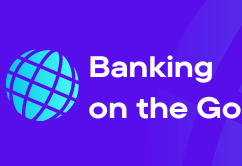Online app banking has revolutionized the financial landscape in the UK, offering unparalleled convenience and innovative features. Fintech banks have emerged as formidable competitors to traditional banking institutions, providing services that cater to the tech-savvy and mobile-dependent population. This article provides a comprehensive comparison of the leading fintech banks in the UK, examining their offerings, strengths, and areas for improvement.
Table of Contents
ToggleIntroduction to Fintech Banks in the UK
Fintech banks, short for financial technology banks, are digital-only banks that operate primarily through mobile applications. They leverage technology to offer a wide range of banking services without the need for physical branches. In the UK, fintech banks like Monzo, Revolut, Starling Bank, and Atom Bank have gained significant traction, providing customers with innovative banking solutions that traditional banks often struggle to match. These banks appeal to a demographic that values flexibility, speed, and user-friendly interfaces.
Monzo: The Pioneer of App-Based Banking
Monzo, founded in 2015, is one of the UK’s most popular fintech banks. Known for its distinctive coral-colored debit card, Monzo offers a wide array of services through its app, including current accounts, savings accounts, loans, and overdrafts. Monzo’s app is highly praised for its user-friendly interface and robust security features. The bank provides instant spending notifications, budget tracking tools, and savings pots, allowing users to manage their finances effectively. Monzo also offers fee-free spending abroad, making it a favorite among travelers.
One of Monzo’s standout features is its transparent approach to banking. The bank regularly communicates with its customers through community forums and social media, incorporating user feedback into its service development. However, Monzo faces challenges such as profitability and competition from other fintech banks. Despite these hurdles, Monzo’s commitment to innovation and customer satisfaction continues to drive its growth.
Revolut: The Global Fintech Powerhouse
Revolut, launched in 2015, has quickly become a global fintech leader, offering a wide range of financial services beyond traditional banking. Revolut’s app provides current accounts, savings accounts, cryptocurrency trading, stock trading, and insurance services. One of Revolut’s key strengths is its multi-currency accounts, allowing users to hold and exchange multiple currencies at competitive exchange rates. This feature is particularly beneficial for frequent travelers and expatriates.
Revolut’s app is known for its sleek design and comprehensive features, including budgeting tools, instant spending notifications, and security features like disposable virtual cards. The bank also offers premium and metal accounts with additional benefits, such as travel insurance, concierge services, and higher withdrawal limits. However, Revolut’s rapid expansion has sometimes led to customer service issues, with some users reporting delays in resolving account problems. Despite these challenges, Revolut’s innovative offerings and global reach make it a formidable player in the fintech banking space.
Related: Comparing Online Banking Interest Rates: Finding the Best High-Yield Savings Account
Starling Bank: The Award-Winning Challenger Bank
Starling Bank, founded in 2014, has earned numerous awards for its app-based banking services. Known for its customer-centric approach, Starling offers current accounts, business accounts, savings accounts, loans, and overdrafts. The bank’s app is highly rated for its intuitive design, real-time notifications, and comprehensive budgeting tools. Starling also provides fee-free spending abroad, competitive interest rates on savings, and a marketplace for third-party financial services.
One of Starling’s unique features is its focus on business banking, offering a range of services tailored to small and medium-sized enterprises (SMEs). The bank’s business accounts come with features like automated bookkeeping, integration with accounting software, and multi-user access. Starling’s commitment to customer service and innovation has earned it a loyal customer base and numerous industry accolades. However, like other fintech banks, Starling faces challenges related to profitability and scaling its operations.
Atom Bank: The UK’s First App-Only Bank
Atom Bank, launched in 2016, was the UK’s first app-only bank, offering savings accounts, mortgages, and business loans. Atom’s app is known for its personalized approach, using biometric security features like facial and voice recognition to enhance security. The bank offers competitive interest rates on savings accounts and flexible mortgage options, making it a popular choice for savers and homebuyers.
Atom Bank’s app is designed to be user-friendly, with features like instant balance updates, spending insights, and personalized financial advice. The bank also offers a marketplace for third-party financial services, allowing users to access a range of products from within the app. However, Atom’s limited range of services compared to other fintech banks may deter some users. Despite this, Atom’s focus on security and personalized banking experiences continues to attract a growing customer base.
Key Features and Innovations
Fintech banks in the UK have introduced several key features and innovations that set them apart from traditional banks. These include:
- Instant Spending Notifications: Most fintech banks offer real-time notifications for transactions, helping users stay on top of their spending.
- Budgeting Tools: Comprehensive budgeting tools and spending insights help users manage their finances effectively.
- Fee-Free Spending Abroad: Many fintech banks offer fee-free spending and competitive exchange rates for international transactions.
- Multi-Currency Accounts: Features like Revolut’s multi-currency accounts allow users to hold and exchange multiple currencies seamlessly.
- Security Features: Advanced security features, including biometric authentication and disposable virtual cards, enhance account security.
- Personalization: Personalized financial advice and customized app experiences cater to individual user needs.
Challenges Facing Fintech Banks
Despite their rapid growth and innovative offerings, fintech banks face several challenges. Profitability remains a key issue, as many fintech banks operate at a loss while investing heavily in technology and customer acquisition. Competition from both traditional banks and other fintech firms also poses a significant challenge. Additionally, regulatory compliance and cybersecurity are critical concerns, requiring ongoing investment and vigilance.
Customer service is another area where fintech banks need to improve. Rapid growth can strain customer support resources, leading to delays in resolving issues. Ensuring a consistently high level of customer service is essential for maintaining customer trust and loyalty.
Future Prospects of Fintech Banking in the UK
The future of fintech banking in the UK looks promising, with continued growth and innovation expected in the coming years. Fintech banks are likely to expand their range of services, incorporating new technologies like artificial intelligence and blockchain to enhance their offerings. Partnerships with other financial services providers and tech companies could also drive growth and innovation.
Regulatory developments will play a crucial role in shaping the future of fintech banking. The UK’s regulatory environment has been relatively supportive of fintech innovation, but ongoing compliance with evolving regulations will be essential. Cybersecurity will remain a top priority, with fintech banks investing in advanced security measures to protect customer data.
Choosing the Right Fintech Bank
Choosing the right fintech bank depends on individual needs and preferences. Monzo, Revolut, Starling Bank, and Atom Bank each offer unique features and benefits, catering to different user demographics. Factors to consider when choosing a fintech bank include the range of services offered, app usability, security features, and customer service quality.
For users who prioritize international transactions and multi-currency accounts, Revolut may be the best choice. Those seeking a user-friendly app with comprehensive budgeting tools might prefer Monzo or Starling Bank. Savers and homebuyers looking for competitive interest rates and personalized banking experiences might find Atom Bank appealing.
Ultimately, the rise of fintech banks in the UK has transformed the banking landscape, offering consumers greater choice and flexibility. As fintech banks continue to innovate and expand their offerings, they are set to play an increasingly important role in the financial ecosystem, challenging traditional banks and redefining the future of banking.
FAQs
What are fintech banks, and how do they differ from traditional banks?
Fintech banks are digital-only banks that operate primarily through mobile applications, offering a range of banking services without physical branches. They leverage technology to provide innovative features like instant spending notifications, budgeting tools, and fee-free international transactions. Unlike traditional banks, fintech banks focus on user-friendly interfaces and personalized banking experiences.
Which are the leading fintech banks in the UK?
Some of the leading fintech banks in the UK include Monzo, Revolut, Starling Bank, and Atom Bank. These banks have gained popularity due to their innovative services, competitive rates, and convenient mobile app experiences.
What features make Monzo stand out among fintech banks?
Monzo is known for its user-friendly app, real-time spending notifications, budgeting tools, and transparent banking approach. It also offers fee-free spending abroad and savings pots to help users manage their finances effectively. Monzo’s focus on customer feedback and community engagement sets it apart.
How does Revolut cater to international banking needs?
Revolut offers multi-currency accounts, allowing users to hold and exchange multiple currencies at competitive rates. This feature, along with its international spending capabilities and additional services like cryptocurrency trading, makes it an excellent choice for frequent travelers and expatriates.
What unique services does Starling Bank offer for businesses?
Starling Bank provides a comprehensive range of business banking services, including business accounts with automated bookkeeping, integration with accounting software, and multi-user access. These features cater specifically to small and medium-sized enterprises (SMEs), helping them manage their finances more efficiently.
What security features does Atom Bank offer?
Atom Bank uses advanced biometric security features such as facial and voice recognition to enhance account security. The app also provides instant balance updates, spending insights, and personalized financial advice, ensuring a secure and personalized banking experience.
Are there any challenges fintech banks face?
Fintech banks face several challenges, including achieving profitability, managing rapid growth, and maintaining high levels of customer service. Regulatory compliance and cybersecurity are also critical concerns that require ongoing investment and attention.
What innovations can we expect from fintech banks in the future?
In the future, fintech banks are likely to incorporate new technologies like artificial intelligence and blockchain to enhance their offerings. They may also expand their range of services and form partnerships with other financial services providers and tech companies to drive growth and innovation.
How should I choose the right fintech bank for my needs?
Choosing the right fintech bank depends on your individual needs and preferences. Consider factors such as the range of services offered, app usability, security features, and customer service quality. For international transactions, Revolut might be ideal; for comprehensive budgeting tools, Monzo or Starling Bank may be preferable; and for competitive savings rates and personalized banking, Atom Bank could be the best choice.














